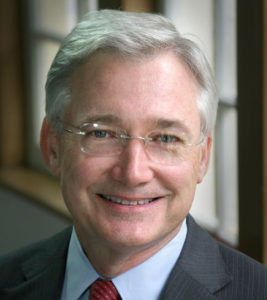What healing can come from this wretched season, and how can I write about it healingly? I’m thinking of this pandemic season stretching on and on with more thousands dying and more upended lives. I’m thinking about this political season, these four years of political rancor climaxing this fall. This wretched political season has torn the fabric of families, relationships, churches, the nation.
There is a verse of Scripture from 2 Chronicles 7:14 that is fervently raised up in evangelical churches and Black churches, less so in others: “If my people who are called by my name humble themselves and pray and seek my face and turn from their wicked ways, then I will hear from heaven and forgive their sins and heal their land.”

Stephen Shoemaker
But there is no common understanding of what “wickedness” is or what “repentance” might look like. Humility is certainly a prerequisite, not as humiliation or self-flagellation, but as the sober acknowledgement of the limits of human power, wisdom and goodness — including our own. I heard President Bill Clinton once say that the most important verse in the Bible for him in his political life was 1 Corinthians 13:12: “For now I see through a glass darkly … now I know in part.” True humility recognizes our human finitude.
How can we heal in this nation when one person’s dream is another person’s nightmare? Such is the state of our divided states of America.
These last four years have been hard on churches and pastors. We have most all failed somewhere along the way at standing for our highest moral values without intensifying the division. I have. Political division has caused people to leave churches and pastors to leave pulpits.
There are toxins in the body politic that will take some time to dissipate — and in the body of Christ, too.
One of the toxins is what I call “political religion,” by which I mean the religion of politics with its partisan furies. This is different from religious people seeking to apply their highest moral values, and the gospel as they understand it, to the political realm. Hebrew and Christian Scriptures will not let us separate personal morality and social morality.
“Hebrew and Christian Scriptures will not let us separate personal morality and social morality.”
The great missionary theologian E. Stanley Jones once said: “The personal gospel without the social gospel is a soul without a body. The social gospel without a personal gospel is a body without a soul. One is a ghost and the other is a corpse.” God forbid our churches become ghosts or corpses.
So we try to preach the “whole counsel of God.” Jesus means justice, yes, but Jesus means also peace, compassion, forgiveness and the fullest meaning of the word “salvation” — wholeness, healing and reconciliation with God, our neighbor and our own deepest self.
Another toxin is what I’d call the “hyper-righteous mind.” I have been helped here by Jonathan Haidt and his book, The Righteous Mind: Why Good People Are Divided by Politics and Religion. He is a moral psychologist who has researched extensively into our moral thinking and behavior. He concludes that we have six moral foundations, not one or two. Some people operate with one of these moral foundations or a set of them, while others gravitate to another set. The problem arises when we believe our set of values is superior to others’ or we don’t even recognize the moral foundations from which others operate.
The six are:
- Care vs. harm (perhaps the most elemental)
- Fairness vs. cheating (think of justice or equality)
- Loyalty vs. betrayal (in marriage, family, friendship, community)
- Authority vs. subversion (think of the importance of the law)
- Sanctity vs. degradation (think of those things we hold sacred and want to protect from desecration)
- Liberty vs. oppression (think of individual, political and religious freedom and the many forms of oppression)
Which are your most important moral foundations? You may be observing that liberals tend to champion one set of moral foundations and conservatives tend to champion another set. The hyper-righteous mind thinks its set is superior to others’ sets.
I do not mean to suggest that all moral foundations are equal in all times and places. I also believe the Hebrew and Christian Scriptures lift up some as most important. But all have their place, and none should be scorned. Jesus commands us to love our enemies, and part of this is learning to love our political opponents with our minds — that is, taking time to understand the moral foundations from which others operate.
Another toxin is what I’d call “the danger of the singular identity.” We are more than “homo-politicus,” more than Democrat or Republican; we are mother, father, someone’s child, teacher, Christian, Jewish, Muslim, American, immigrant. Singular identities can become dangerous, exclusive, violent.
The last toxin I will mention is addiction to what Richard Rohr calls “oppositional energy.” It can consume us. I think it is possible to stand opposed without giving in to oppositional energy.
Detoxing from this wretched season requires something else: Loving what a good, rejoicing in the wonder of life, cultivating awe, practicing gratitude.
In the Iona community worship book there is this affirmation:
With people everywhere
We affirm
God’s goodness at the heart of humanity
Planted more deeply than all that is wrong.
With all creation
We celebrate
The miracle and wonder of life
The unfolding purposes of God
Forever at work in ourselves and the world.
Say those words and begin to feel something begin to heal inside.
Stephen Shoemaker serves as pastor of Grace Baptist Church in Statesville, N.C. He served previously as pastor of Myers Park Baptist in Charlotte, N.C.; Broadway Baptist in Fort Worth, Texas, and Crescent Hill Baptist in Louisville, Ky.


